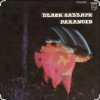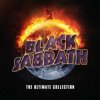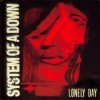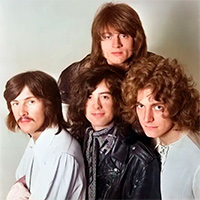
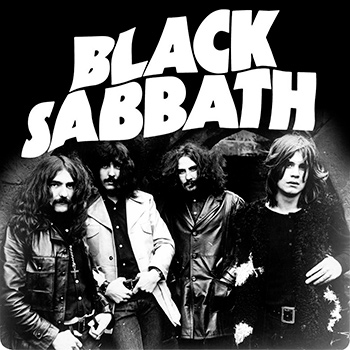
Black Sabbath are a British band from Birmingham (formed in 1968 as Polka Tulk/Earth), widely recognized as pioneers of heavy metal. The classic lineup: Ozzy Osbourne (vocals), Tony Iommi (guitar), Geezer Butler (bass), Bill Ward (drums). Dark lyrics, down-tuned guitars, tritones, and a “heavy” riff-driven approach set the genre’s canon and influenced dozens of branches—from heavy and doom metal to stoner.
History & Milestones
-
Formation (1968–1970). From blues rock into darkness: the renaming to Black Sabbath; the eponymous debut (1970) and a rapid breakthrough with Paranoid (1970) — “War Pigs,” “Paranoid,” “Iron Man.”
-
Golden Classics (1971–1975). Master of Reality, Vol. 4, Sabbath Bloody Sabbath, Sabotage cement the signature heavy touch: Iommi’s thick tone (partly shaped by his finger injury), Butler’s philosophical/social lyrics, and Ozzy’s expressive vocal presence.
-
Experiments & Changes (1976–1978). Technical Ecstasy, Never Say Die! — broader colors (keys, hints of jazz-rock) amid inner tensions; Osbourne departs.
-
Ronnie James Dio Era (1980–1982, 1992). Heaven and Hell and Mob Rules — refreshed lyricism and epic delivery; later a return with Dehumanizer (1992).
-
Tony Martin Years (1987–1995). Atmospheric, “dark” albums — The Eternal Idol, Headless Cross, Tyr, Cross Purposes, Forbidden — a cult period for fans of Iommi’s classic “British” sound.
-
Reunions & Finale (1997–2017). Live set Reunion (1998), the triumphant studio comeback 13 (2013, produced by Rick Rubin), and the farewell tour The End (2016–2017); final concert — Birmingham, 4 February 2017.
Legacy & Influence
Black Sabbath defined the language of heavy music: lowered tunings, tarry riffs, the “theme–riff–hook” dramaturgy, bleak poetics, and a contrast between ritual groove and memorable melodies. Without Sabbath, it’s hard to imagine Judas Priest, Metallica, Iron Maiden, Soundgarden, Sleep, and vast swathes of stoner/doom.
Awards & Facts
-
Inducted into the Rock and Roll Hall of Fame (2006).
-
Grammy Awards for “Iron Man” (Best Metal Performance, 2000) and “God Is Dead?” (2014), plus a Grammy Lifetime Achievement Award (2019).
-
Album covers and artwork (e.g., Sabbath Bloody Sabbath) helped codify the genre’s visual language alongside the band’s signature “hellish” riffs.
-
“Paranoid” was written virtually “at rehearsal” — and became the band’s calling card.
Key Discography (selected)
Ozzy Osbourne Era
-
Black Sabbath (1970)
-
Paranoid (1970)
-
Master of Reality (1971)
-
Vol. 4 (1972)
-
Sabbath Bloody Sabbath (1973)
-
Sabotage (1975)
-
Technical Ecstasy (1976)
-
Never Say Die! (1978)
Ronnie James Dio Era
-
Heaven and Hell (1980)
-
Mob Rules (1981)
-
Dehumanizer (1992)
Tony Martin Era
-
Seventh Star (1986)
-
The Eternal Idol (1987)
-
Headless Cross (1989)
-
Tyr (1990)
-
Cross Purposes (1994)
-
Forbidden (1995)
Reunion with Ozzy
-
13 (2013)
Notable Compilations/Live
-
We Sold Our Soul for Rock ’n’ Roll (1976, compilation)
-
Reunion (1998, live)
Essential Playlist Picks
“Black Sabbath,” “N.I.B.,” “Paranoid,” “War Pigs,” “Iron Man,” “Children of the Grave,” “Sabbath Bloody Sabbath,” “Heaven and Hell,” “Neon Knights,” “Die Young,” “After Forever,” “God Is Dead?”.
Conclusion
Black Sabbath didn’t just found heavy metal — they architected it: its sound, aesthetics, and semantics. Their catalog remains vital in the digital age — from arena-sized hard rock anthems to viscous doom and epic heavy metal. The band’s story is a lesson in daring and invention: when limitation (Iommi’s finger injury) became a new riffing language, and marginal darkness turned into a global cultural code.
